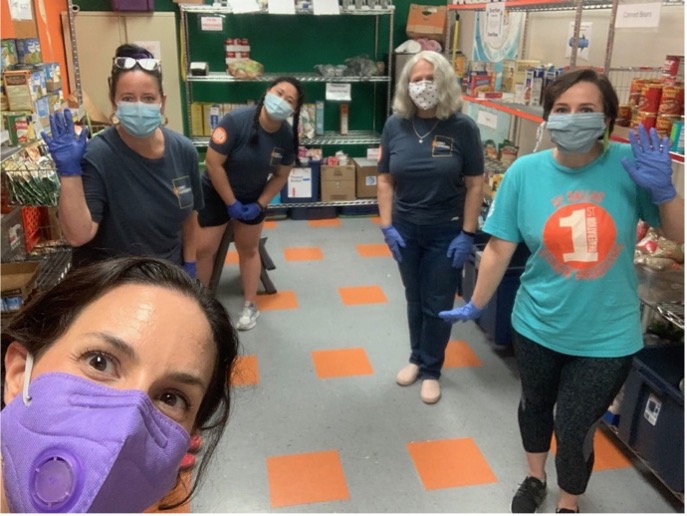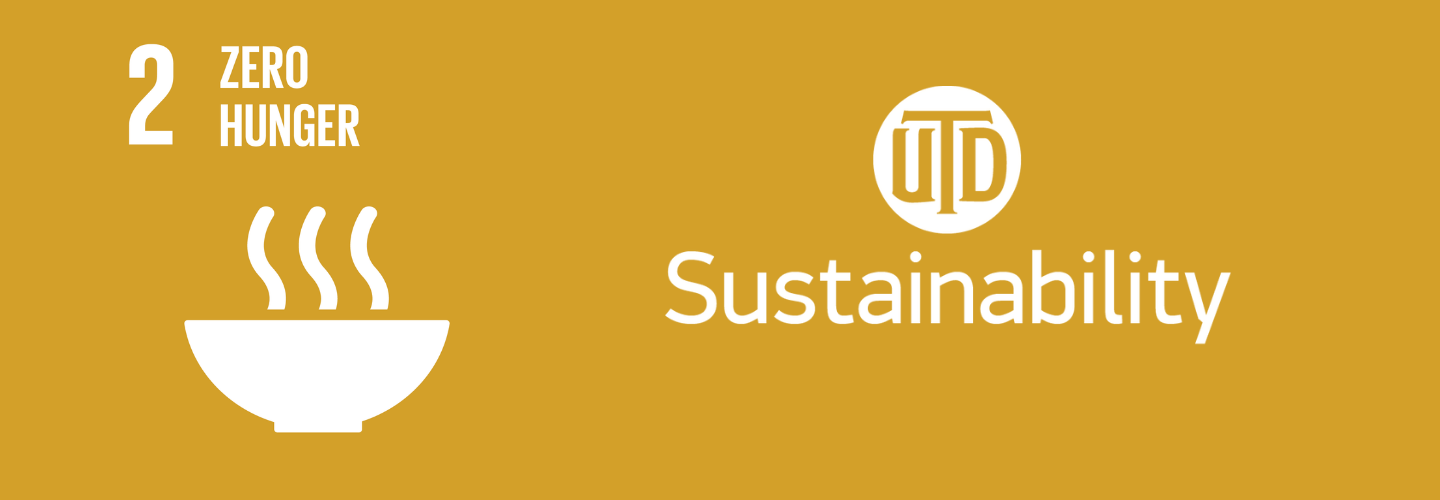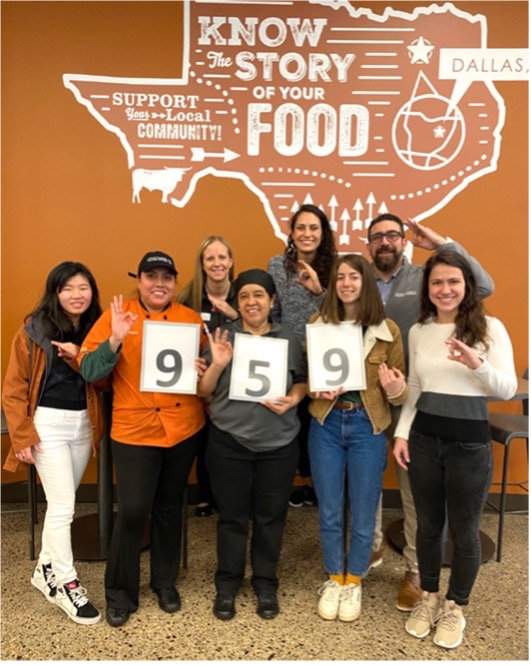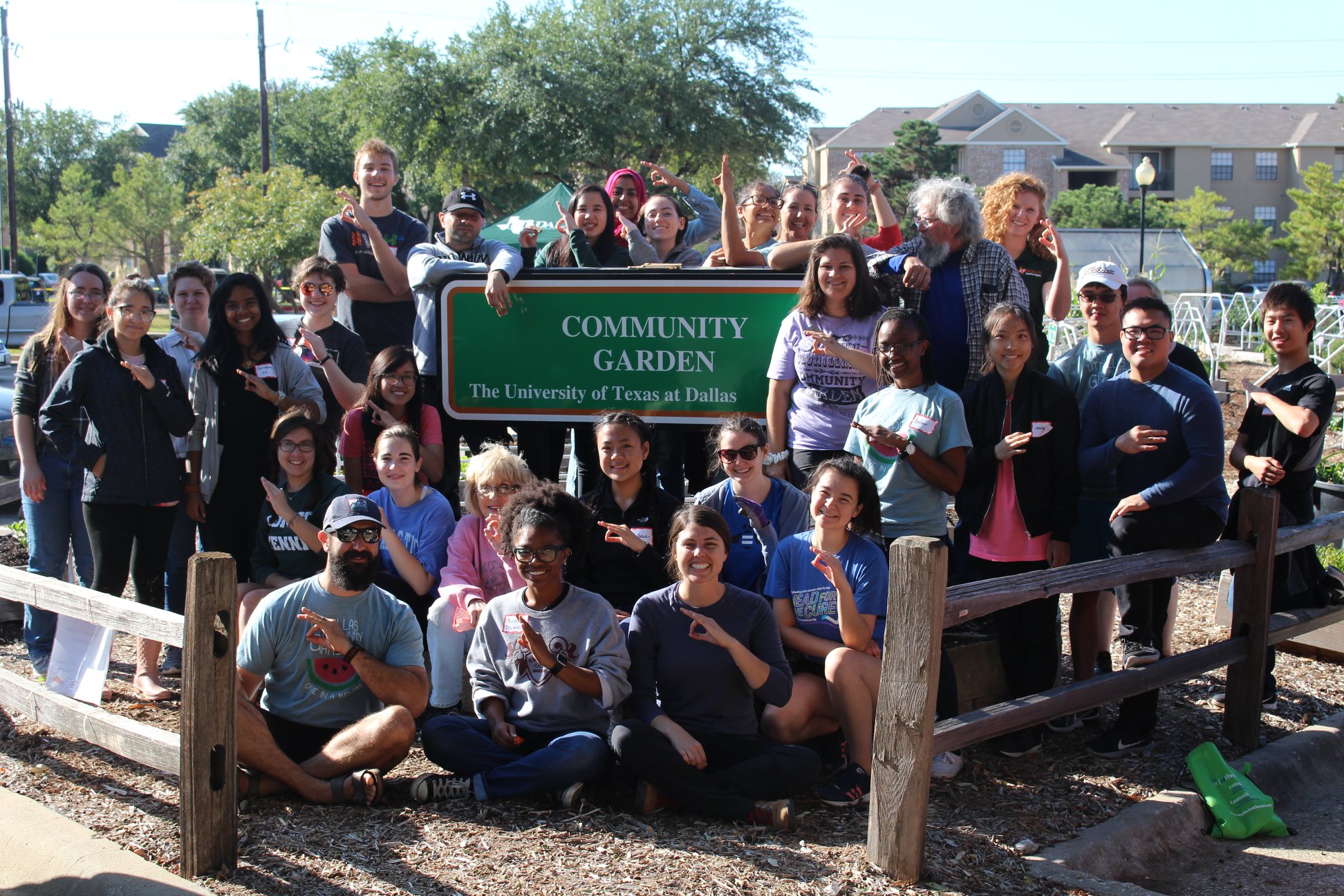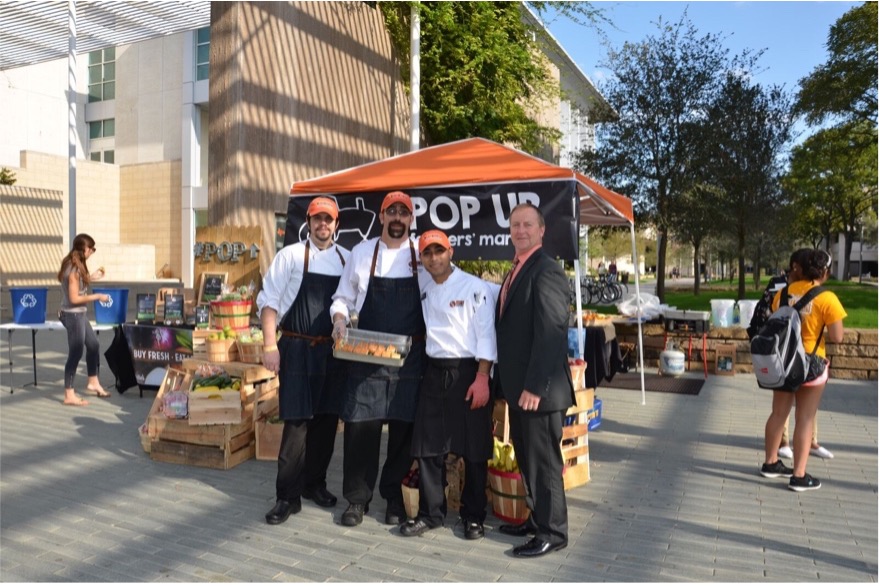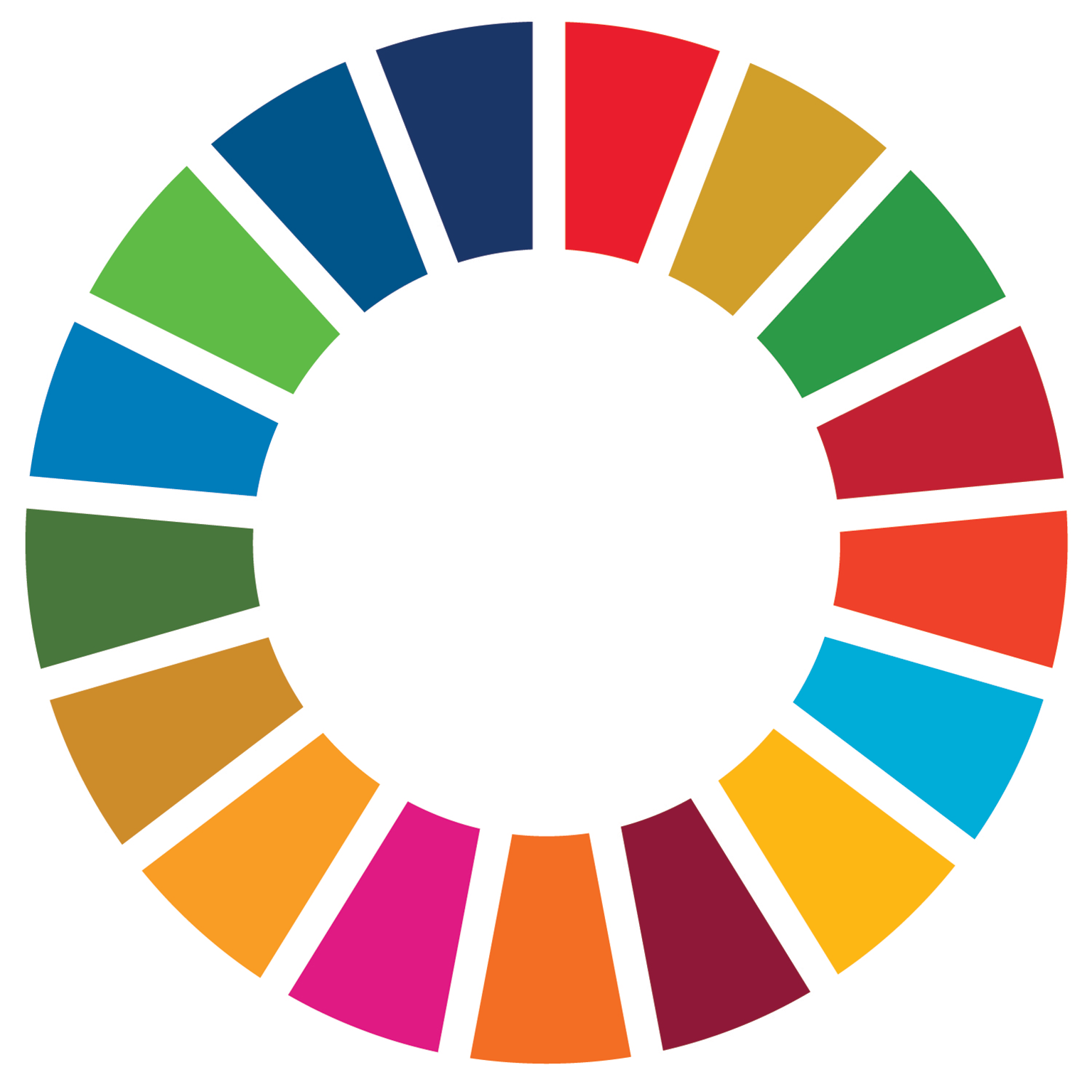End hunger, achieve food security and improved nutrition
and promote sustainable agriculture.
Zero Hunger Globally
The United Nations presents Zero Hunger as Sustainable Development Goal 2, with
the broad goal of ending hunger worldwide by 2030. Unfortunately, the world is not on
track to achieve this goal. Currently, the World Food Programme estimates that 349 million people
worldwide suffer from acute hunger.
Achieving Zero Hunger by 2030 is a lofty goal. However, the United Nations has
provided measurable targets to assess the world’s progress. They include ensuring
access to nutritious food, ending all forms of malnutrition, doubling agricultural
productivity, and maintaining genetic diversity of seeds.
Read more about the targets.
Zero Hunger Locally
In Texas, the household food insecurity rate is 13%, about 1 in 8 Texans.
In Dallas, 20% of children live in households that have struggled with
food insecurity in the last year. Green Dallas has identified several local issues that contribute
to food insecurity, including food deserts, food waste, and food supply disruption.
When a college student
suffers from food insecurity, they are more likely to experience mental health and
academic performance issues. No student should have to make the decision between buying
a textbook or groceries for the week.
The University of Texas at Dallas strives to ensure that students have
sufficient access to healthy food through programs such as the Comet Cupboard and the UTD Eco Hub. We also work to reduce food insecurity in our local
area through outreach programs such as the Food Recovery Network and fundraising campaigns.
Read more about the work we do here at UT Dallas for Sustainable Development
Goal 2 below.
Highlights
Comet Cupboard
SDG 1: No Poverty
SDG 3: Good Health and Well-Being
Comet Cupboard volunteers pose with food donations
The Comet Cupboard is an on-campus “food pantry initiative
dedicated to helping students in need. Its primary mission is to provide necessary food
and personal care items to members of the UT Dallas community, but its impact
reaches much further. The Comet Cupboard acts as a service-learning component of the
undergraduate academic experience and strives to cultivate a campus culture where the
community is valued above individualism.”
All UT Dallas students are eligible to receive assistance from the Comet Cupboard.
UTD has led a variety of fundraising campaigns to support the work of the Comet Cupboard.
Campus departments also participate in the annual Raising Cans competition, transforming
food donations into small sculptures. Since its founding, the Comet Cupboard has become a known entity on campus to support
students in times of need.
Food Recovery Network
SDG 1: No Poverty
SDG 12: Responsible Consumption and Production
Food Recovery Network volunteers celebrate donating 959 pounds
to Hope’s Door in 2019
UT Dallas is home to a chapter of the Food Recovery Network, a national organization that
works to reduce food waste and donate leftover food items to those facing food insecurity.
In Spring 2018, student volunteers donated over 1,224 pounds of food to Hope’s Door, a shelter
that helps women and children who are victims of domestic violence. Since 2016,
UTD has donated over 5,000 pounds of leftover food to the shelter. Through
the Food Recovery Network chapter, UT Dallas is both preventing food waste and
addressing food insecurity in the Dallas area.
The student organization ECO, dedicated to preserving the spirit of sustainability
in fellow students and the community, has most recently taken the responsibility
of facilitating this program in 2023 since its decline in 2020.
Community Garden
SDG 11: Sustainable Cities and Communities
SDG 15: Life on Land
Students volunteer for Comet Cupboard on campus
UT Dallas is a home to a Community Garden, in which campus community members can
reserve their own plot and grow produce. The Community Garden has 19+ plots. Led
by the Office of Student Volunteerism, the Community Garden also offers work days for
students to participate. The Office of Sustainability has worked to distribute produce
from the Community Garden to those in need on campus. During Earth Week 2019, volunteers
worked to donate 12 pounds of onion, kale, and lettuce harvest. Student volunteers
also transplanted 16 tomato, melon, and paper plants into the Community Garden. In June 2020, following the outbreak of the COVID-19 pandemic,
the Community Garden had donated over 60 pounds of vegetables to the Comet Cupboard.
We hope to continue donating in the future.
The UTD Eco Hub
SDG 3: Good Health and Well-Being
SDG 12: Responsible Consumption and Production
In fall 2021, The Office of Sustainability launched the UTD Eco Hub, becoming a
hive for student leadership for sustainability on campus and in our community. It includes
an apiary led by UTD expert beekeepers, a young fruit orchard, a shed painted by student
artists, and 20,000 square feet of farmland.
The UTD Eco Hub is intended to be student-led, with the primary focus of the
microfarm being food production for food-insecure communities through the Comet Cupboard
and other North Texas Food Bank Partner Agencies. It is also expected that the Eco Hub
will become an area for students interested in sustainability issues to convene, provide
service, build community, and provide education and outreach to peers.
Read more about the UTD Eco Hub
“Pop Up Farmer’s Market”
SDG 3: Good Health and Well-Being
SDG 11: Sustainable Cities and Communities
Executive Chef Gene Christiano (center) stands with Vice
President for Student Affairs Gene Fitch (right) and two other workers on the
first day of operation for the Pop-Up Farmers’ Market; The market will be open the
first Tuesday of every month until November
Hosted by UT Dallas Dining Services, the “Pop Up Farmers Market”
makes an appearance at the Plinth on the second Tuesday of regular semesters. This
educational campaign works to teach students about sustainable and healthy food options.
Students can also shop the produce and prepared foods prepared by the Farmer’s Market. Buying local is one way to reduce one’s carbon footprint,
as shopping from farmer’s markets can support local businesses and reduce the
transportation required to transport food long distances.
Read more about the launch of the Pop-Up Farmer’s Market.
Goals / Future Work
- Expand educational programming around nutrition and food insecurity
- Increase awareness and accessibility of the Comet Cupboard to students on campus
- Continue building partnerships to end food insecurity in
DFW [Dallas / Fort Worth] community
- Increase access to fresh produce on campus through the Community Garden
Learn More
- Check out SDG Academy to take interactive educational courses pertaining to
SDG 2 [Sustainable Development Goal 2] :
Zero Hunger
- Learn more about the targets and indicators at the UN Global Goals website
- Check out the Comet Cupboard to donate or receive needed resources
- Visit the North Texas Food Bank to learn about food
insecurity in the greater Dallas community
